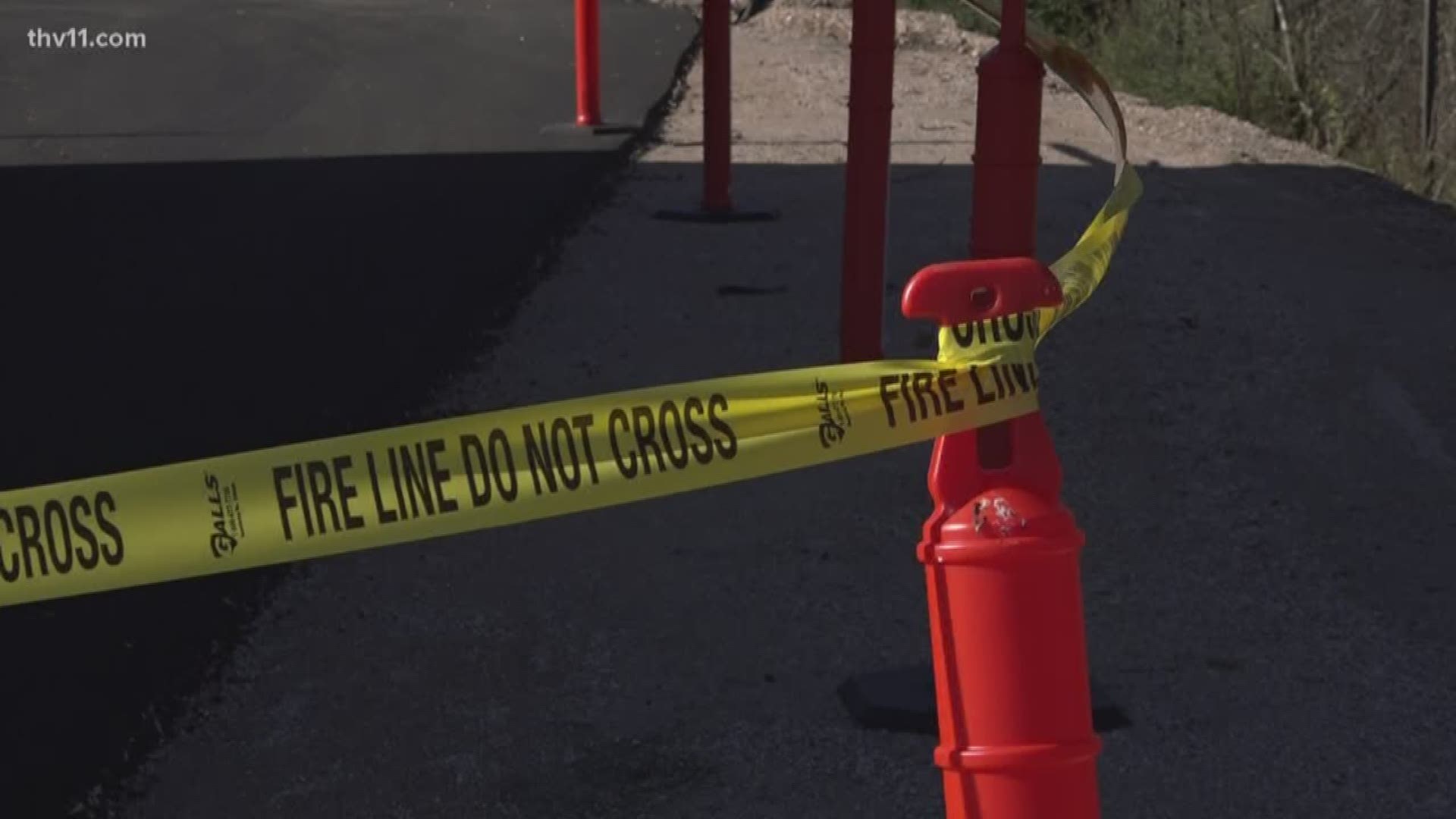HOT SPRINGS, Ark. — A compact 90-sq.ft. radioactive hot zone in Hot Springs will be in place for a few weeks after a trash hauler tripped radiation detectors at the Saline County landfill on Tuesday.
State and city officials have cordoned off the trailer in a secure fire department training site while the materials inside decay. The officials stress there is no danger to the public, but no one will open the compartment until the levels go down.
"This is the first time in the 21 years at the fire department that we've had anything like this," said Tom Braughton, the city fire marshal and assistant chief.
"We have a hazardous materials team that has all the equipment and set up the necessary precautions."
Braughton says those teams got the call around 11:30 a.m. Tuesday when the driver called his managers in the City Solid Waste Department. His load had triggered a radiation alarm when he got to the landfill and he was heading to the Garland County Fairgrounds where crews would figure out what he had picked up.
"Our detection equipment came back inconclusive," Braughton said. "A third party came in and identified it as iodine 131, which is a medical waste."
That's a chemical associated with atomic bombs, and also some cancer treatments. Detective work indicates this probably isn't something industrial. It's probably a lot more personal.
"It came from a residential neighborhood. So it could be anything from somebody getting a treatment here lately and it was something that their body produced coming out of that treatment."
That means it could be blood or it could be something else our bodies make that creates a hot mess even without making a radioactive hot zone.
The health department says this kind of thing is rare.
"Most medical facilities that create or use radioactive materials have to have the material licensed," said Connie Melton, a branch chief in the Arkansas Dept. of Health.
"That usually makes finding the person responsible easier, but in this case, it could be a small amount on clothing or in the trash. Finding the owner will be difficult."
Melton added that usually, patients get specific instructions on how to get rid of bodily waste at home. She reminds everyone to make sure they follow those guidelines if they will be handling fluids or sharps outside a medical facility.
For now, people can go right up to within three feet of the truck safely. The half-life of iodine 131 is eight days, but Braughton said testing would go on for weeks to track while radiation levels are tracked.
He also said the truck never glowed when a reporter asked childishly.

